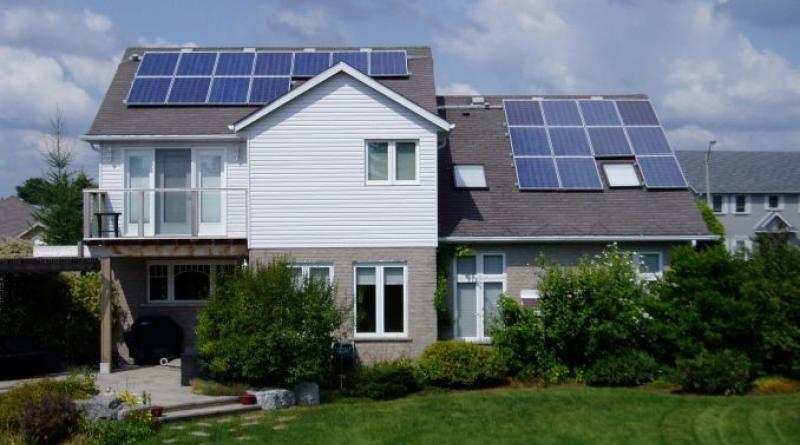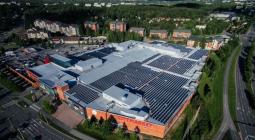Most German households want more renewable energies: survey.

BERLIN -- The majority of private households in Germany could imagine changing their energy supply, according to the so-called Energy Transition Barometer 2019 published by the German state-owned development bank KfW on Thursday.
The Energy Transition Barometer measured "the willingness of households in Germany to change their energy supply" and found that around 80 percent were prepared to make changes.
More than 60 percent of German households surveyed by the KfW said they would like to use more renewable energies or even generate the energy themselves.
"The continued use of renewable energies in private households is urgently needed," said KfW senior economist Daniel Roemer.
German households caused around 70 percent of the direct greenhouse gas (GHG) emissions in buildings and more than 60 percent of GHG in transport, the KfW noted.
Private households could make "a decisive contribution to German energy and climate policy," emphasized the KfW report.
Through "behavior or the selection of technologies," German households also had an indirect yet significant influence on emissions in electricity generation, according to the KfW.
In the German building sector, GHG emissions had already been reduced by almost 40 percent between 1990 and 2017, the KfW noted.
However, "development has stagnated recently" and in order to meet Germany's national climate protection targets for the building sector by 2030, the annual GHG savings needed to be more than doubled compared with the years 2005 to 2017, according to the KfW.
Households were also facing changes in terms of mobility, according to the survey. Today, only around 1 percent of German households had a hybrid or electric car.
According to the survey, in 10 years, every fourth household in Germany was planning to drive an electric car and a "breakthrough of electric mobility" was to be expected by 2030.
"This development promises to make a decisive contribution to climate protection in transport," said KfW senior economist Roemer.
As a central obstacle to the spread of electric cars, the households surveyed stated that, in addition to the high purchase price, the number of charging stations in Germany was too low.
Only around a quarter of current charging processes used public charging infrastructure and "therefore the expansion of private charging infrastructure was a central factor," noted the German development bank.
The majority of households in Germany were "not only behind the energy system transformation, but would also like to take an active part in the energy system transformation and change their own energy supply," concluded the KfW report.
23 August 2019
Xinhua News




